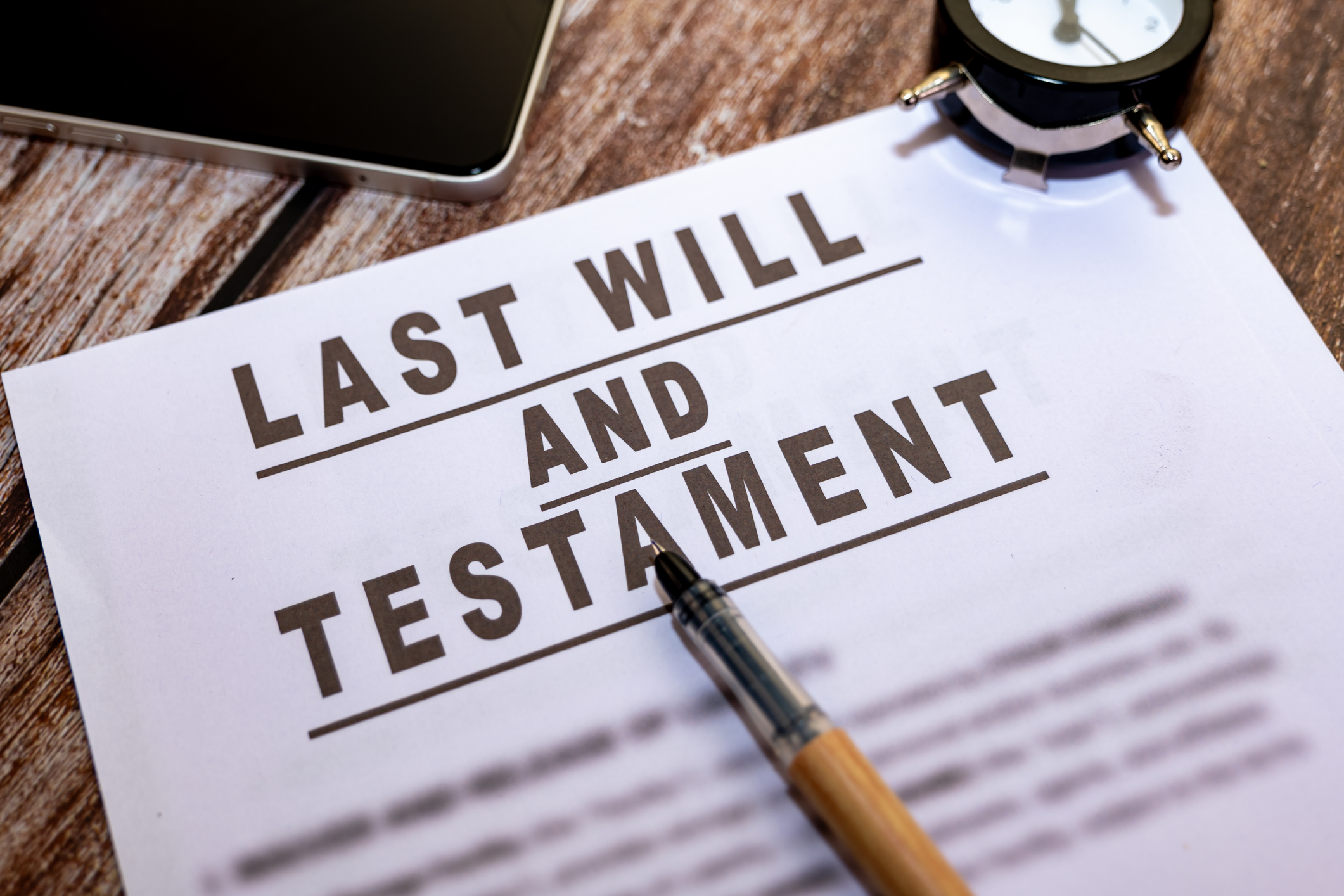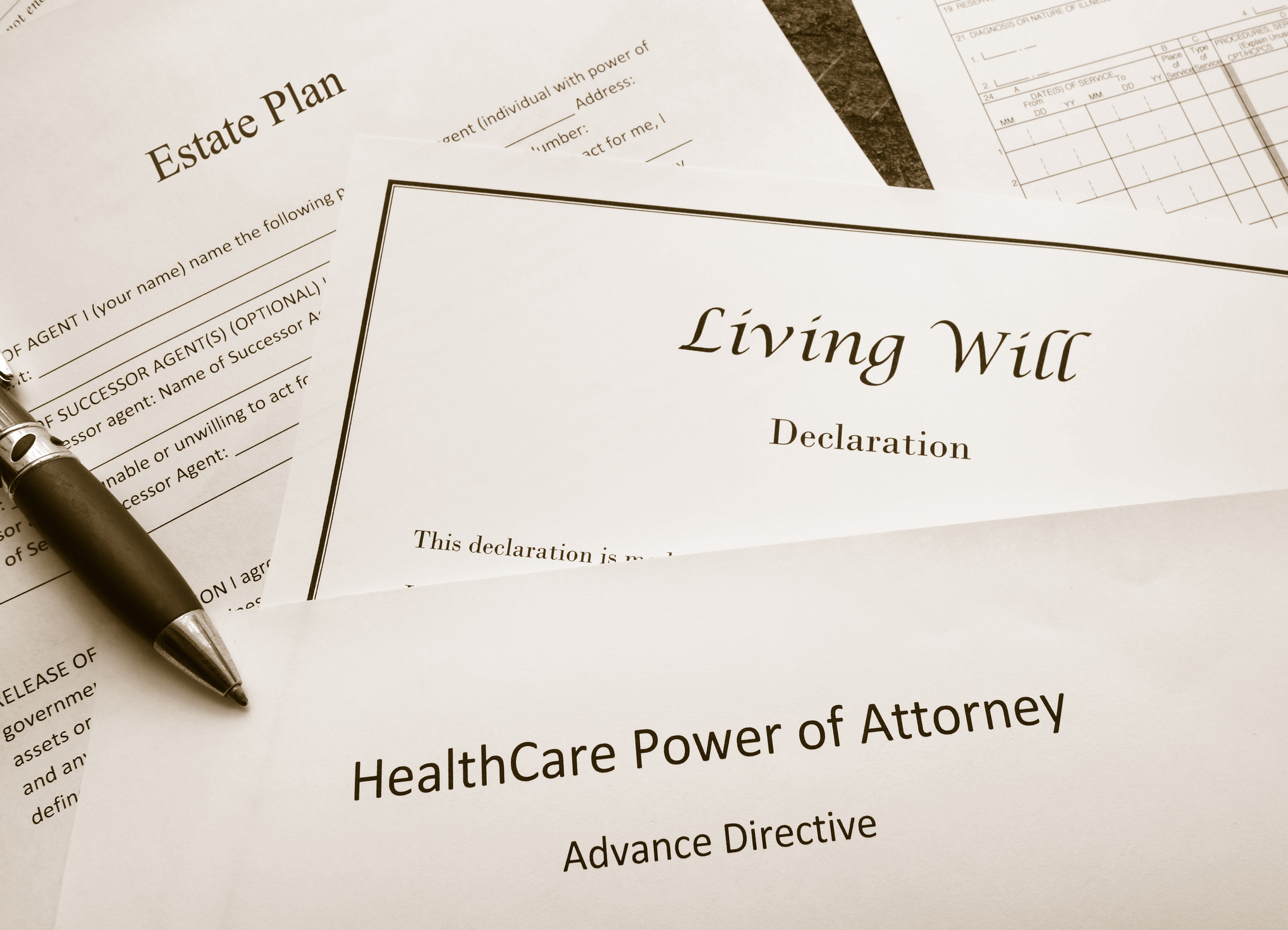Estate Planning for Singles: 10 Things You Should Know
Estate planning for singles is deceptively complex. Here's how to break it down.


Profit and prosper with the best of Kiplinger's advice on investing, taxes, retirement, personal finance and much more. Delivered daily. Enter your email in the box and click Sign Me Up.
You are now subscribed
Your newsletter sign-up was successful
Want to add more newsletters?

Delivered daily
Kiplinger Today
Profit and prosper with the best of Kiplinger's advice on investing, taxes, retirement, personal finance and much more delivered daily. Smart money moves start here.

Sent five days a week
Kiplinger A Step Ahead
Get practical help to make better financial decisions in your everyday life, from spending to savings on top deals.

Delivered daily
Kiplinger Closing Bell
Get today's biggest financial and investing headlines delivered to your inbox every day the U.S. stock market is open.

Sent twice a week
Kiplinger Adviser Intel
Financial pros across the country share best practices and fresh tactics to preserve and grow your wealth.

Delivered weekly
Kiplinger Tax Tips
Trim your federal and state tax bills with practical tax-planning and tax-cutting strategies.

Sent twice a week
Kiplinger Retirement Tips
Your twice-a-week guide to planning and enjoying a financially secure and richly rewarding retirement

Sent bimonthly.
Kiplinger Adviser Angle
Insights for advisers, wealth managers and other financial professionals.

Sent twice a week
Kiplinger Investing Weekly
Your twice-a-week roundup of promising stocks, funds, companies and industries you should consider, ones you should avoid, and why.

Sent weekly for six weeks
Kiplinger Invest for Retirement
Your step-by-step six-part series on how to invest for retirement, from devising a successful strategy to exactly which investments to choose.
Estate planning for singles is crucial for your long-term peace of mind. It lays out what you want to happen to your assets after death and during situations when you can’t make decisions. But if you’ve never married or were married a long time ago and have no children, don’t assume estate planning is a breeze. It’s not.
“People often think estate planning will be simpler in this situation, [but] it’s a lot more complicated,” says James C. Bartholomew, an estate planning attorney in Bend, Ore. “That’s why getting the right documents and plans in place is so important.”
Estate planning for singles: why it's different
There are a few reasons why estate planning for singles can be tricky.
From just $107.88 $24.99 for Kiplinger Personal Finance
Become a smarter, better informed investor. Subscribe from just $107.88 $24.99, plus get up to 4 Special Issues

Sign up for Kiplinger’s Free Newsletters
Profit and prosper with the best of expert advice on investing, taxes, retirement, personal finance and more - straight to your e-mail.
Profit and prosper with the best of expert advice - straight to your e-mail.
First, many older retirees are female, so estate planning for women is critical. Women have unique issues to consider, such as longer lives and more pressure to leave work to be caretakers, for example.
Second, many singles have fewer resources to pay for estate planning. There are ways to save money on an estate plan, if need be. (If you are single and wealthy, you should look into special trusts and other tips for estate planning for millionaires.)
The number of unmarried, childless Americans over 50 continues to grow. If you’re among them, here’s what you need to know:
1. Having no estate plan can put a stranger in charge
If you die without an estate plan, a.k.a. intestate, the courts distribute your property according to state law. The courts also pick someone to make healthcare decisions and manage your money when you cannot.
For someone with a spouse and/or children, it can work out because state laws pick these immediate relatives by default. But if you’re single, state laws will go down your list of relatives — parents to siblings to nieces and nephews, aunts and uncles and cousins until they find a match. “The further a relative is down this list, the less likely they are to be who the person would have named,” says Bartholomew.
If you have no living relatives, the courts will pick a guardian for you. The state will also keep your property if you have no living relatives and die without an estate plan.
2. List your healthcare wishes ahead of time

You can use a healthcare power of attorney to pick someone to speak with doctors about your medical situation and help make decisions for your care. If you name a close friend, make sure they can come see you and wouldn’t be blocked by hospital visitation rules.
You could also draw up an advance directive laying out your desires for end-of-life care, such as whether you want to stop aggressive treatment if you have no chance of survival. “Without instructions, doctors will default to doing whatever it takes to keep a person alive,” says Bruce Tannahill, a director of estate planning with MassMutual.
3. Decide who will manage your money
A financial power of attorney names someone to manage your financial accounts and pay your bills when you cannot. “It should be someone in a similar financial position whom you closely trust,” says Tannahill.
This role can usually be handled by a nonprofessional, with the support of your professional advisers, says Tannahill. A sibling, a niece or nephew or a close friend are possibilities. Make a list of your financial accounts for this person, as well as the names of your advisers.
4. Plan your inheritance and update as needed

A will lays out where you want your property to go after you pass away. You can leave property to friends, charities and other organizations; it’s not just restricted to family.
You could also leave money behind to care for a beloved pet and name who will look after it when you’re gone. You could set up a trust fund to pay out a set amount each year to make sure your pet is taken care of.
Your will should name an executor to oversee the process of distributing the inheritance. You could use a friend or family member for this role. You could also hire a professional from a bank or a lawyer or an accountant. You can hire an attorney to create all your estate plan documents or you could use online services like LegalZoom or Trust & Will.
Make sure to review every three to five years and update estate plan documents as your life and priorities change.
5. Trust funds streamline the process
A revocable trust fund is a legal entity that can hold your property, such as bank accounts, brokerage accounts and real estate. But since it’s revocable, you can take the property back whenever you want.
You set up a revocable trust with a trust company or the trust division of a bank. If you become incapacitated, your contact at the trust company manages the accounts on your behalf and pays your bills.
There are benefits to working with a professional, says Bryan Bell, a financial planner with First Horizon Bank in Brentwood, Tenn. “You may think your nephew is up to the job, but when you need him, he could be juggling responsibilities with his kids, maybe he just lost his job.”
When you die, you also list instructions in the trust fund for distributing your assets. You sidestep probate, the court process of reviewing your will. A trust fund costs about 1% per year of the assets you put in, estimates Bell.
6. State inheritance tax laws are a potential problem

You can leave up to $13.61 million in 2024 without owing federal estate taxes. However, 17 states and the District of Columbia charge estate and inheritance taxes with lower exemptions, especially for single people.
“A lot of exemptions are based on family relationships,” says Bartholomew, the estate planning attorney from Oregon.
For example, New Jersey doesn’t charge inheritance taxes on property left to spouses, domestic partners, children, grandchildren and parents. But leave property worth $500 or more to more distant relatives or friends, and the state will tax it at rates of up to 16% — no exemptions.
7. You can pre-arrange your funeral
If you plan your funeral ahead of time, that takes another uncomfortable decision off the hands of your relatives and friends. “Do you want to be cremated? Be buried in a certain area? Make sure it’s all laid out, and someone knows your wishes,” says Bell, the financial planner from Tennessee.
You could pre-arrange a package with churches, cemeteries and funeral homes. While you could pre-pay while alive or your executor could pay out of your assets after you pass, says Bell. If you pre-arrange a funeral, make sure to document what the other party agreed to on costs, and let relatives know where they can find this information.
8. Make your long-term-care plan

This should be one of your most significant areas of focus. Consider what you want to happen if you need help being taken care of after a severe illness or injury. You could use an in-home nursing service if you want to age in place and stay out of a nursing home as long as possible.
If that’s what you want, think about how you’d pay for long-term care, either using long-term care insurance, a hybrid life insurance policy with long-term care coverage or your savings. You should also modify your home so you can still manage it after a decline in physical abilities.
9. Be careful when dating
It’s possible to find love at any age. But keep your guard up if you enter a new relationship, whether in real life or online. “People might think, ‘Here’s a single person with no kids who seems to have a lot of money.’ Ask yourself their motive in the situation,” says MassMutual’s Tannahill.
You can avoid being taken advantage of by maintaining separate finances and not giving the new person control over your accounts and not making them your financial power of attorney.
Online dating and social media have increased the vulnerability of those seeking romance. In a practice known as catfishing, scammers steal the social media identity of another person to woo potential lovelorn victims online, eventually asking for loans, favors or help paying for travel to meet in person. It's a good idea to be on the lookout for general financial frauds and scams these days, as con artists use artificial intelligence and deep fakes to make their scams even more challenging to spot.
10. Find others to check up on you

Consider teaming up with another relative or close friend to make sure you’re both OK. You could schedule a daily check-in call or text message. You might ask the person with your financial power of attorney to keep an eye on your spending. If there are any unusual purchases, he or she should make sure you’re still making appropriate decisions.
Stay active in groups and activities. If you stop showing up, someone likely will check up on you. It’s good for your mental well-being as well. “Retirees shouldn’t stay at home and watch TV alone every day. They need to get out in the community,” says Tannahill.
Note: This item first appeared in Kiplinger Retirement Report, our popular monthly periodical that covers key concerns of affluent older Americans who are retired or preparing for retirement. Subscribe for retirement advice that’s right on the money.
Related Content
Profit and prosper with the best of Kiplinger's advice on investing, taxes, retirement, personal finance and much more. Delivered daily. Enter your email in the box and click Sign Me Up.

David is a financial freelance writer based out of Delaware. He specializes in making investing, insurance and retirement planning understandable. He has been published in Kiplinger, Forbes and U.S. News, and also writes for clients like American Express, LendingTree and Prudential. He is currently Treasurer for the Financial Writers Society.
Before becoming a writer, David was an insurance salesman and registered representative for New York Life. During that time, he passed both the Series 6 and CFP exams. David graduated from McGill University with degrees in Economics and Finance where he was also captain of the varsity tennis team.
-
 Stocks Sink With Alphabet, Bitcoin: Stock Market Today
Stocks Sink With Alphabet, Bitcoin: Stock Market TodayA dismal round of jobs data did little to lift sentiment on Thursday.
-
 Betting on Super Bowl 2026? New IRS Tax Changes Could Cost You
Betting on Super Bowl 2026? New IRS Tax Changes Could Cost YouTaxable Income When Super Bowl LX hype fades, some fans may be surprised to learn that sports betting tax rules have shifted.
-
 How Much It Costs to Host a Super Bowl Party in 2026
How Much It Costs to Host a Super Bowl Party in 2026Hosting a Super Bowl party in 2026 could cost you. Here's a breakdown of food, drink and entertainment costs — plus ways to save.
-
 Your Adult Kids Are Doing Fine. Is It Time To Spend Some of Their Inheritance?
Your Adult Kids Are Doing Fine. Is It Time To Spend Some of Their Inheritance?If your kids are successful, do they need an inheritance? Ask yourself these four questions before passing down another dollar.
-
 The 4 Estate Planning Documents Every High-Net-Worth Family Needs (Not Just a Will)
The 4 Estate Planning Documents Every High-Net-Worth Family Needs (Not Just a Will)The key to successful estate planning for HNW families isn't just drafting these four documents, but ensuring they're current and immediately accessible.
-
 Love and Legacy: What Couples Rarely Talk About (But Should)
Love and Legacy: What Couples Rarely Talk About (But Should)Couples who talk openly about finances, including estate planning, are more likely to head into retirement joyfully. How can you get the conversation going?
-
 We're 62 With $1.4 Million. I Want to Sell Our Beach House to Retire Now, But My Wife Wants to Keep It and Work Until 70.
We're 62 With $1.4 Million. I Want to Sell Our Beach House to Retire Now, But My Wife Wants to Keep It and Work Until 70.I want to sell the $610K vacation home and retire now, but my wife envisions a beach retirement in 8 years. We asked financial advisers to weigh in.
-
 How to Add a Pet Trust to Your Estate Plan: Don't Leave Your Best Friend to Chance
How to Add a Pet Trust to Your Estate Plan: Don't Leave Your Best Friend to ChanceAdding a pet trust to your estate plan can ensure your pets are properly looked after when you're no longer able to care for them. This is how to go about it.
-
 Want to Avoid Leaving Chaos in Your Wake? Don't Leave Behind an Outdated Estate Plan
Want to Avoid Leaving Chaos in Your Wake? Don't Leave Behind an Outdated Estate PlanAn outdated or incomplete estate plan could cause confusion for those handling your affairs at a difficult time. This guide highlights what to update and when.
-
 I'm a Financial Adviser: This Is Why I Became an Advocate for Fee-Only Financial Advice
I'm a Financial Adviser: This Is Why I Became an Advocate for Fee-Only Financial AdviceCan financial advisers who earn commissions on product sales give clients the best advice? For one professional, changing track was the clear choice.
-
 Quiz: Are You Ready for the 2026 401(k) Catch-Up Shakeup?
Quiz: Are You Ready for the 2026 401(k) Catch-Up Shakeup?Quiz If you are 50 or older and a high earner, these new catch-up rules fundamentally change how your "extra" retirement savings are taxed and reported.